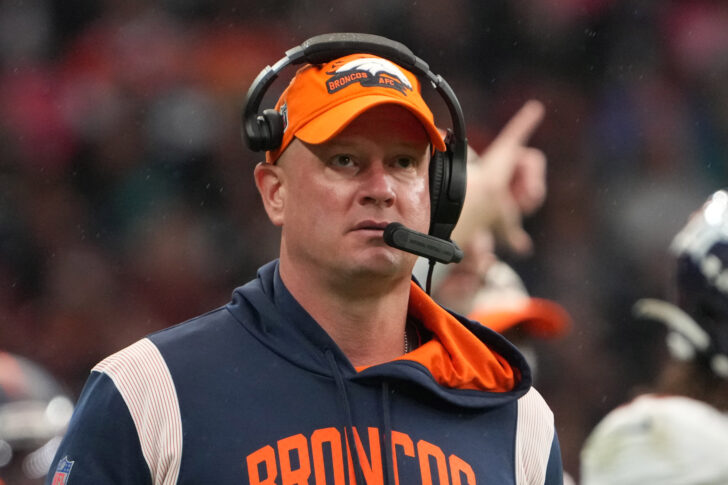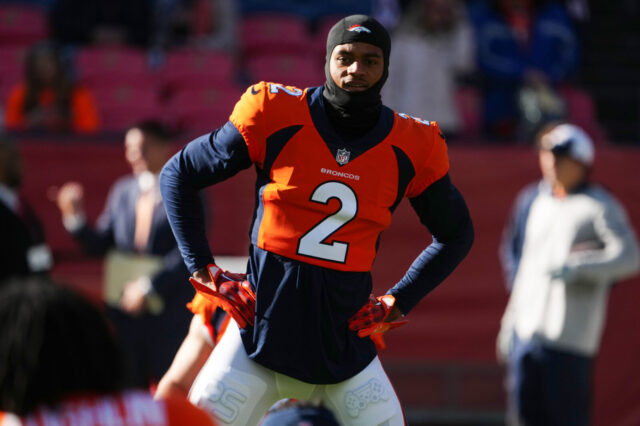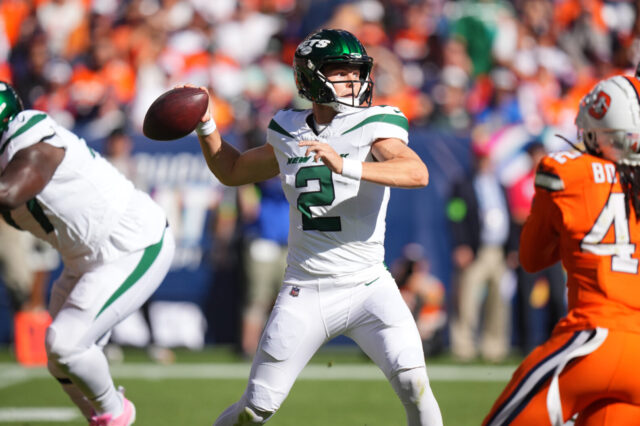This current hiring cycle for the Denver Broncos as they look to find their next head coach is more important than ever for the franchise. Not only do the Broncos need to hire the right head coach for the on-field product, but they must also hire a coach who possesses these important traits as a leader of the team.
Denver Broncos next head coach must have these traits
When looking for traits in potential head coaching candidates, the common one often echoed is leadership. As cliche as it may sound, what is leadership? How does a coach teach and exemplify leadership? Is a coach’s leadership transactional or transformational? How can the Broncos find a coach who toes the line between both?
Transformational leadership
Transformational leadership is a necessary quality the next head coach of the Denver Broncos must possess. Every coach should possess this trait in an ideal world. It’s not only about who is being transformed, but what is being transformed.
For Denver specifically, transforming the losing culture that has been around the Broncos for the last seven years is a top priority, but it cannot be transformed if the process of getting there undermines what is best for the entirety of the team. The Broncos locker room has a strong player culture, a room full of guys who have each other’s backs and spend time with one another away from the game. The next head coach of the team has to understand how important this is and become part of it.
Avoid the past
For the next head coach, there are things he must avoid in order to win games. Part of being a coach means being there for the players, listening to the players, but ultimately doing what is right for the players and for the entirety of the team.
A great read from Joe Ehrmann points out several important distinctions that destroy any locker room. One of them is ‘the narcissist coach’, and a great example of this in the Broncos’ past with head coaches was Josh McDaniels. Ehrmann describes the narcissist coach as one who craves being center stage. “He gloats on the sideline as the clock ticks down, full of pride in himself, not in his players,” Ehrmann noted in his novel InSideOut COACHING. Coaching isn’t and has never been about the ‘self’ because it destroys every concept of how transformational coaching impacts winning both on and off the field.
Under former head coach Vic Fangio, the emphasis was old school and perceived as ‘my way or the highway’. A transformational coach can toe the line between setting the expectation and standard for how he wants things done, but also in a way that isn’t dictatorial. One thing is clear, the Walton-Penner Family Ownership Group cares about the operation, the players, and human beings while also valuing how the fanbase feels regarding the on-field product, but they themselves understand the nature of being transformative despite having strong experience thriving in transactional businesses.
Avoid the Messiah Complex
Broncos fans initially fell in love with former head coach Nathaniel Hackett’s demeanor toward his players and coaches last season. In a transactional business, having a coach who possesses the ability to care for his players away from the field is important, but there is a fine line between being liked and doing what is right and the former interfering with the latter. The Messiah Complex as touched on in Ehrmann’s ‘InSideOut COACHING’ described the duality of being a savior versus actually being transformational.
“Coaching can draw in the type of person who wants to save the world and actually excessively empathizes with players,” Ehrmann noted. “Players need boundaries, rules, and regulations – players need to be helped, but part of that help is teaching them how to resolve problems on their own, instead of rescuing them so the coach can feel needed.” Whether it’s pop warner, high school, college, or in the NFL, these things are essential and important to foster a winning culture.
Another important distinction Ehrmann noted is ‘the urge to be loved and appreciated and to be a do-gooder is the curse of the saint. “Coaches are there for players — players are never there to meet the needs of coaches, not even supposedly saintly coaches.” Hackett was an example of this type of coach. Despite having the best intentions, helping repair a previously fractured locker room under Vic Fangio, the former Broncos head coach fell into the trap of being liked, which made things difficult for the next trait that’s going to be discussed.
Accountability is the seed that will help the team grow
Accountability was a painful word for the Denver Broncos in 2022. After every loss under Hackett, the message was ‘it starts with me’ or ‘it’s about accountability’ which created more frustration regarding the on-field results. Accountability for the next Broncos head coach means being able to make tough decisions for the betterment of the team, which are deemed to be actionable and tangible not only for on-field execution but for coaches themselves.
Where the Broncos struggled at times last season with this trait was with Hackett whose offense struggled at a historic rate while he called plays on offense, despite being tasked with controlling the entire operation of the team. Throughout the first 12 games of the season, Hackett struggled with delegating and giving up playcalling on the offensive side of the ball.
The next head coach must possess the ability to hold coaches and players accountable while ultimately being able to hold himself accountable and implement changes that will help benefit the entirety of the football team. Accountability in and of itself encompasses other important traits like delegation, self-awareness, and creating an environment that allows growth to occur in all facets.
Will the next Broncos head coach possess the necessary qualities to help transform the on-field product while preserving the strong locker room culture amongst the players?



